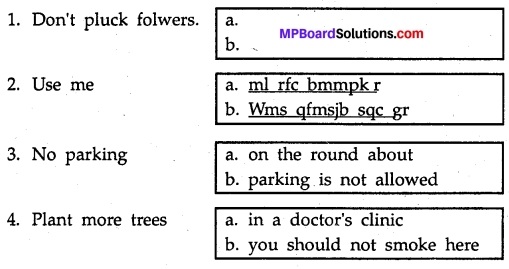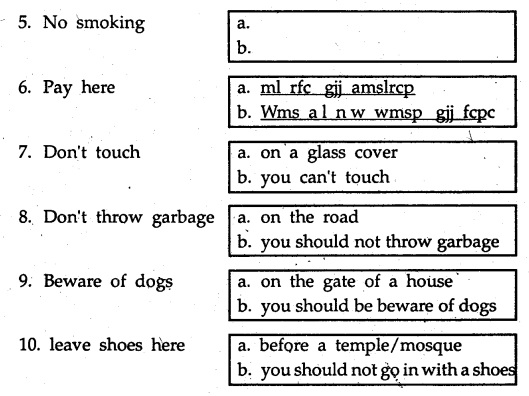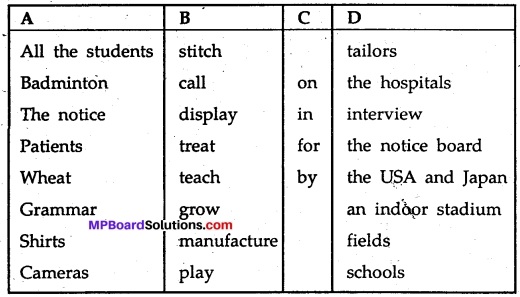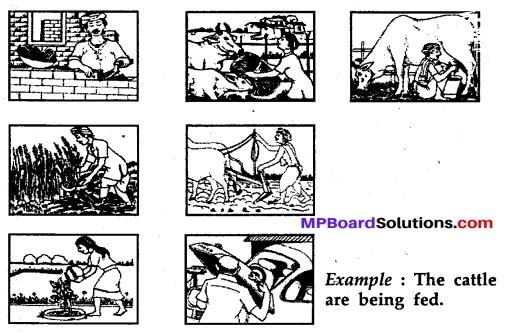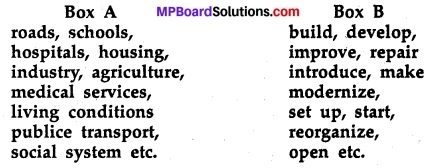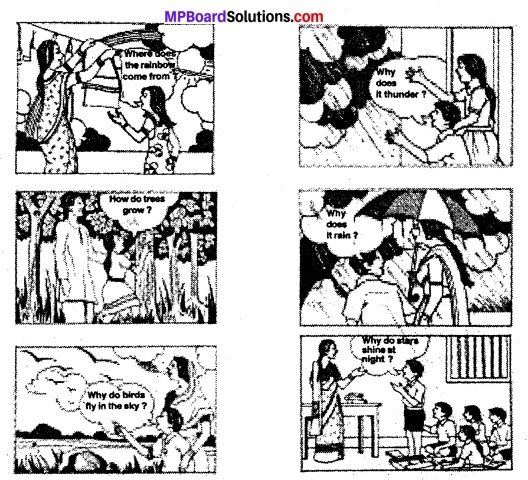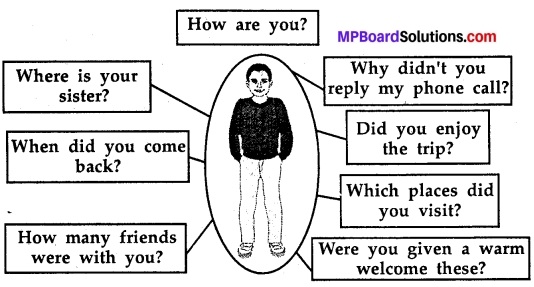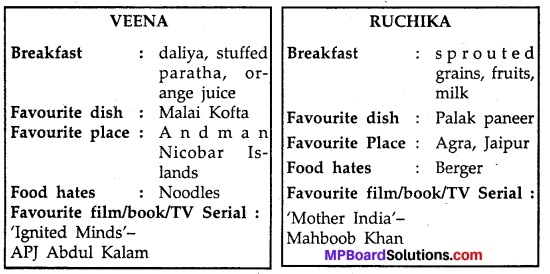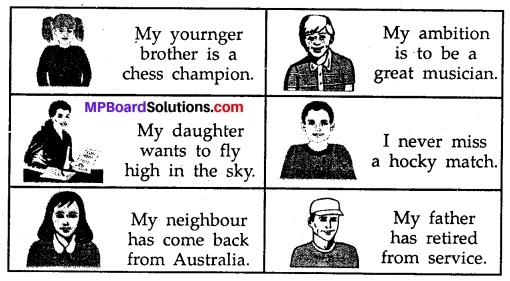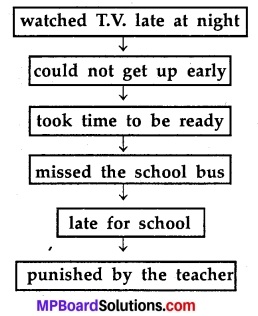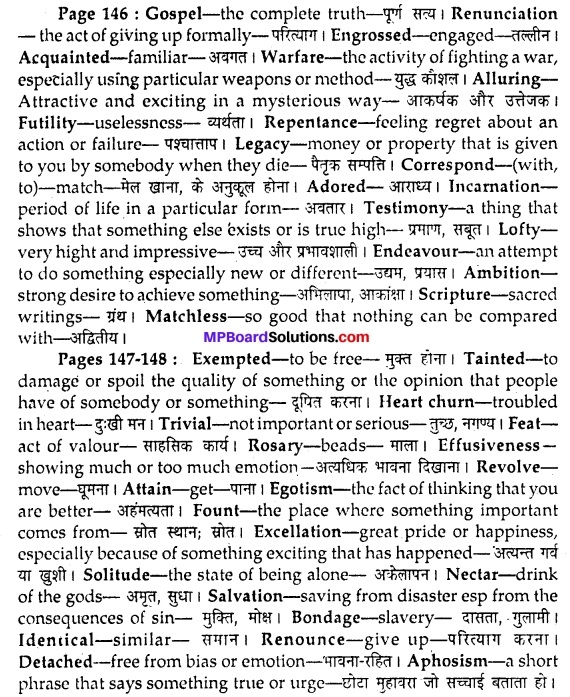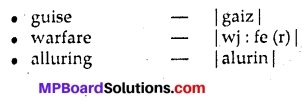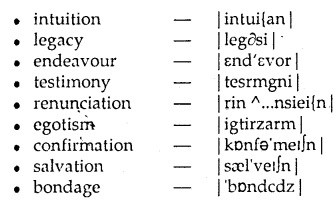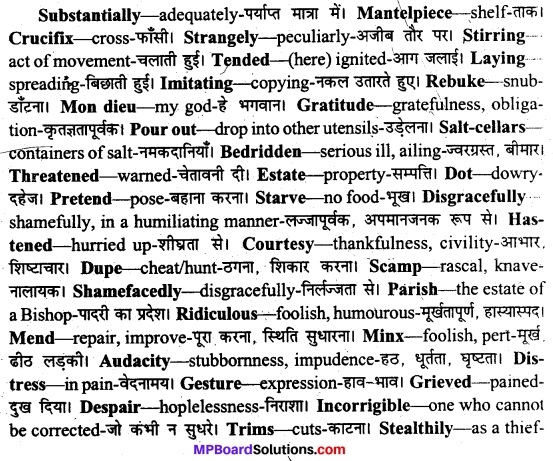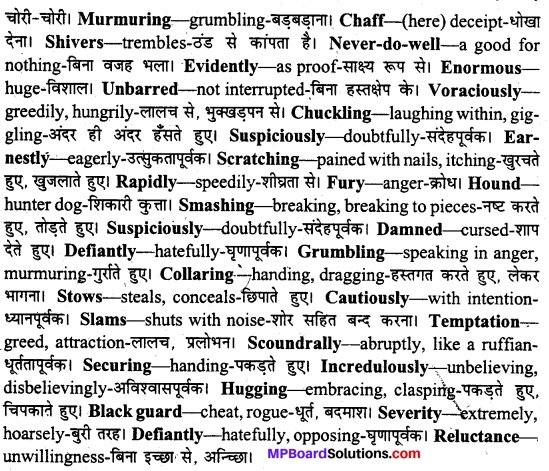Students who are studying 11th can get the free Madhya Pradesh Board Solutions for 11th English Active and Passive Voice Questions and Answers PDF here. You can download MP Board Class 11th English Solutions Questions and Answers PDF on this page. Practice questions of Mp Board Solutions of 11th English subject as many times as possible to get good marks.
MP Board Class 11th Special English Grammar Active and Passive Voice
Gather chapter wise MP Board Solutions for 11th English Study Material to score the highest marks in the final exam. Various chapters and subtopics are given clearly in MP Board Class 11th English Solutions Active and Passive Voice Questions and Answers Material. All the MP Board Solutions for 11th English Questions with detailed answers are provided by subject experts. The step by step MP Board Class 11th English Active and Passive Voice Questions and Answers guide will help you to enhance your skills in English subject and grammar. Here, along with the subject knowledge, grammar knowledge also plays an important role. So, students should download MP Board Solutions 11th English and read it to attempt all the questions with 100% confidence.
Voice is the verb form which shows the relation of subject to action in a sentence. When the subject of the verb does something the verb is in Active voice, when something is done to the subject the verb is in the Passive voice.
Example :
Ritu writes a letter. (Active Voice)
A letter is written by Ritu. (Passive voice)
Rules :
(a) Active के Subject को Passive में Object की जगह और Active के Object को Passive में Subject की जगह दें;
(b) Passive में Object के पहले by लगाएं।
(c) Tense को निम्न structures के अनुसार बदलें-
Present Tense
(a) Simple Present—Subject + is/am/are + v3 + by + object.
Example :
The teacher teaches English.
English is taught by the teacher.
(b) Present Continuous Tense—Subject + is/am/are + being + v3 + by object
Example :
Rohan is” playing cricket.
Cricket is being played by Rohan.,
(c) Present Perfect—Subject + has/have + been + v3 + by -r object.
Example :
Sneha has dope it
It has been done by Sneha.
Past Tense
(a) Simple Past—Subject + was/were + v3 + by + object. Example :
My mother cooked food.
Food was cooked by my mother.
(b) Past Continuous Tense—Subject + was/were + being + v3 + by + object.
Example :
Shishir was driving a car.
A car was being driven by Shishir.
(c) Past Perfect Tense—Subject + had + been + v3 + by + object.
Example :
The postman had delivered the letters.
The letter had been delivered by the postman.
Future Tense
(a) Simple Future—Subject + will/shall + be + v3 + by + object.
Example :
I shall buy a car.
A car will be bought by me.
(b) FuturePerfect Tense—Subject + shall/will + have + been + v3 + by + objective.
Example :
I shall have finished this lesson.
This lesson will have been finished by me.
Note. There is no change in the voice of present perfect continuous, past perfect continuous, future continuous and future perfect continuous tenses.
Exercises
Q. 1. Change the voice from Active to Passive :
(i) Good manners make a character.
(ii) Vijay gave him a book.
(iii) He will do this work.
(iv) I am writing a book.
(v) I will teach him a lesson.
(vi) This news surprised me.
(vii) The mason was building the house.
(viii) I had finished my work by that time.
(ix) She makes a doll.
(x) Boys were playing football.
(xi) Somebody has put out the light.
(xii) They were consulting their teacher at that time.
(xiii) They kept him in prison for twenty years.
(xiv) Someone gave the baby a beautiful doll.
(xv) She knows Vinita.
(xvi) Rita found the lecture very dull.
(xvii) They should shoot the terrorist dead.
(xviii) We should keep promises.
(xix) He was delivering a lecture.
(xx) I gave him a book.
Answer
(i) Character is made by good manners.
(ii) A book was given by Vinay.
(iii) This work will be done by him.
(iv) A book is being written by me.
(v) A lesson will be taught to him by me.
(vi) I was surprised by this news.
(vii) The house was being built by the mason.
(viii) My work had been finished me by that time.
(ix) A doll is made by her.
(x) Football was being played by boys.
(xi) The light has been put out by somebody.
(xii) Their teacher was being consulted at. that time by them.
(xiii) He was kept in prison for twenty years.
(xiv) The baby was given a beautiful doll by someone.
(xv) Vinita is known by her.
(xvi) The lecture was found very dull by Rita.
(xvii) The terrorist should be shot dead.
(xviii) Promises should be kept.
(xix) A lecture was being delivered by him.
(xx) He was given a book by ..ie.
Above provided complete MP Board Solutions 11th English Study guide is useful for making your preparation effective. Students can frequently visit our page to get the latest updates on other subjects study materials.



